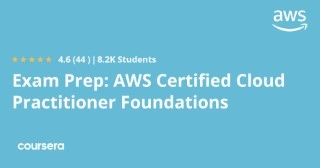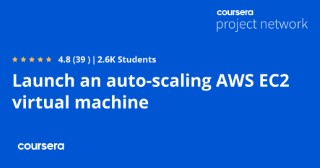DevOps Engineer Course | Kubernetes
This is a project-based course, where the fundamentals, concepts and terminology used in Kubernetes, Docker and the Google Cloud platform is covered.
This free online Diploma in DevOps Engineering teaches you the fundamental concepts of Microservices, and summarises the functions of Kubernetes, Docker and Google Cloud platforms. This course provides you with two real-world projects you will work on to improve your understanding of Kubernetes, Docker and Google Cloud. DevOps engineering is an ever growing field, start this free online course today to get yourself qualified for DevOps work.
What You Will Learn In This Free Course
Introduction to the Course and Microservices
In this module you will be introduced to the course content and the fundamental concepts and terminology used in Microservices computing is introduced.
Google Cloud and Docker
In this module you will learn how to set up a Google Cloud account and learn about the different tools and menu features in the Google Cloud platform. You will also learn about Microservices development and contrast it with Monolithic architecture.
Virtual Box and Kubernetes
In this module you will learn about the main function of Kitematic and learn how to create a Docker Hub account and a Docker ID. You will also learn what Kubernetes does and its relationship to containers.; Module
Google Cloud Shell
In this module you will learn about the cloud shell function in the Google Cloud platform, together with some basic commands. You will also learn how to connect to the Docker Hub Repository and pull images, and about the features of the different Google Cloud Engines (App, Compute and Container).
Diploma in DevOps Engineering – First Assessment
This assessment is a knowledge test, based on content covered in Modules 1 – 4. If you are not successful in your first attempt, you can re-take the assessment, until a successful outcome is achieved.; Module
Containers and Images
In this module you will learn how to pull repositories from the Docker Hub into a virtual machine, and use the ‘sudo’ command to connect to the Docker Hub. You will also learn how to manually create Docker images, using a docker file.
Deploying an App
In this module you will learn how to deploy an app on a cluster, and provide the container image, specify the number of pods and define a ‘service’ in Kubernetes.; Module
Frontend Development
In this module you will learn how Redis worker pods are created, to compliment the master pod, and how the replication controller effects the performance of pod replicas.; Module
Course Review
In this module the instructor re-caps the most important theoretical and practical learning concepts that were covered in the course. An illustration is used as a guide.; Module
Diploma in DevOps Engineering – Second Assessment
This assessment is a knowledge test, based on content covered in Modules 6 – 9. If you are not successful in your first attempt, you can re-take the assessment, until a successful outcome is achieved.; Module
Course assessment
User Reviews
Be the first to review “DevOps Engineer Course | Kubernetes”
You must be logged in to post a review.







There are no reviews yet.